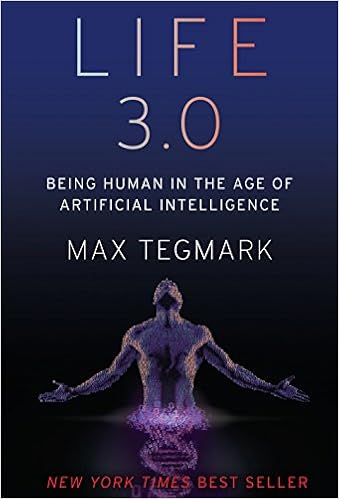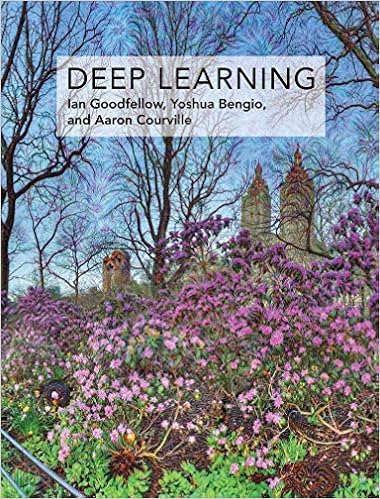9 Elon Musk Book Recommendations Sorted By Date
Whether you ask him about his passion for futuristic technologies, rockets or artificial intelligence, Elon Musk has one answer – he reads books (both non-fictions and fictions). In fact, he actually devours them. It is no surprise that today’s top entrepreneurs are great readers as well.
All in all, here are some of the top Elon Musk book recommendations to lighten yourself up and open up your mind a little. Get ready to be impressed.
What Books Elon Musk Recommends to Read?

Human Compatible, by Stuart Russell (2019)
There are quite a few misconceptions and ideas about artificial intelligence out there. For example, most people naturally assume that robots will soon take people’s jobs, leaving humans without an income. Human relationships are also threatened, not to mention the actual civilization – what happens if machines decide to go against people? A conflict between robots and people seems to be inevitable.
AI researcher Stuart Russell aims to tackle these misconceptions. He agrees that such scenarios can be prevented, but then, they will not happen overnight. In his opinion, artificial intelligence should be redone from scratch. People need to rethink everything and begin all over again. He analyzes the short-term benefits of this trend, as well as the necessity of AI breakthroughs to reach superintelligence.
If superhuman artificial intelligence does emerge, the world has created more powerful entities. At this point, such entities may have too much power over the humankind. Is there a way to prevent all these problems? Absolutely. According to the author, artificial intelligence can be kept under control with a new foundation that will push robots into helping the humankind, rather than working on their own goals.

Life 3.0, by Max Tegmark (2017)
Artificial intelligence has incredible potential when it comes to changing the collective future – more than any other technology out there. The author – MIT professor and Future of Life Institute founder – has helped to take this technology to another level, so he knows precisely what he is talking about. While it may seem sophisticated, this book is actually easy to understand, regardless of your experience.
Life 3.0 is well researched and vital for those interested in the future. The author goes to the basics of artificial intelligence, as well as the basics of the human condition. He brings in a plethora of questions that may intrigue some people, yet the truth is everyone will end up with these questions at some point or another.
How can automation help people prosper? How can automation solve the world’s problems without leaving people without any income? How can you know that future robots will not crash or get hacked? Should you fear that artificial intelligence will take the world over? Will machines eventually outsmart everyone out there? There is only one way to find out.

The Big Picture, by Sean Carroll (2016)
Sean Carroll’s clear and elegant writing has drawn lots of positive attention and The Big Picture can seriously boost your mindset – no surprise it is one of the top Elon Musk book recommendations. Not only does the author analyze problems like anyone else, but he also answers questions that everyone may have at some point or another.
Who are you? What about your emotions and beliefs? Do they mean anything or are they completely meaningless? The book is easy to read and chapters are short. Each chapter has some personal expositions, asides and anecdotes in order to help readers understand how the world works at different levels – cosmic, human and quantum. Then, find out how these levels actually connect to each other.
The author discusses a plethora of ideas and inventions that have taken the world to another level over the past years. People’s lives are now irrelevant if you consider the immensity of time, as well as the space. However, on the same note, people try to give their lives a bit of meaning too. From many points of view, this book is a worldwide review of everything you know so far.

Deep Learning, by Ian Goodfellow, Yoshua Bengio, Aaron Courville and Francis Bach (2016)
This is one of Elon Musk favorite books and according to the prolific entrepreneur, it is the only book that actually tackles this topic in an efficient manner. It is the most comprehensive book written in this field. Practically, it analyzes deep learning, which means machines can learn based on previous experiences and understand concepts, rather than be programmed to act in a certain manner.
Since the computer gains experience from what happens around, there is no need for human operators to actually deal with the programming. As the computer is exposed to more and more concepts, they will be simplified for faster and more efficient reactions later on. The idea is fairly simple to understand, but this book brings in a plethora of conceptual backgrounds and ideas in this field.
From some points of view, Deep Learning might be a bit more difficult to read than other similar books. It may take a bit of time to realize what is going on, so it is mostly aimed at those with little experience – such as graduate or undergraduate students pushing for a career, as well as software engineers. Some of the research perspectives might be too overwhelming for someone with no experience at all.

Zero to One, by Peter Thiel (2014)
While it looks like the world has seriously evolved over the past few decades, the truth is there is still plenty to discover. There are many other inventions out there waiting to kick in and there are lots of uncharted frontiers for the human civilization. The author – also known for his entrepreneurial skills – aims to help people understand how to come up with such things.
There are no doubts about it – the world is in an age of technology. However, while new ideas pop up every now and then, the truth is the world stagnates. The IT industry has developed overnight, but it seems that progress is now limited. However, progress can occur anywhere, anytime, regardless of the industry. Learning to think for yourself is the way forward then.
If you do something that everyone knows, you have achieved nothing. But when you come up with something new and innovative, you change the world. The idea is to become tomorrow’s top entrepreneur by creating something unique. The point is to compete in a ruthless manner and get rid of competition by having none at all.

Superintelligence, by Nick Bostrom (2014)
This book asks a question that everyone has – what will happen on the day when robots manage to surpass the human intelligence? Will artificial intelligence actually save the world and make it better or simply destroy it? The author aims to give answers to this question by analyzing more scenarios and ideas – one of Elon Musk's favorite books.
At this point, human brains cannot be matched. This is what makes people superior to other species. But now, take gorillas for example – their fate depends on humans. One day, superintelligence could be the new trend. If it surpasses human intelligence, things may follow the same trend – humans' fate could depend on superintelligent machines.
There is, however, one major intelligence for the humankind – people have the first move. Now, small mistakes could have major consequences in the long run – no doubts about it. The question is – will the humankind be able to control this explosion of modern intelligence? Will people be able to keep everything under control?

Lying, by Sam Harris (2013)
You just cannot go wrong with this book, which aims to become a classic. This is a story of life. If you have read Othello or Anna Karerina, you get the point. Many things in life – all levels – are driven by lies. They are not just promoted by lies, but they are also sustained for long-term results. Pretty much anything that lacks morals will require an additional defect, which is the power of lying.
It makes no difference what you are thinking about. It could be a simple theft. It might as well be an act of adultery or simply any other form of personal betrayal. Financial theft and frauds are just as common, not to mention corruption. Take it even further and even a murder will have the same thing in common with the other mentioned ideas – the willingness to come up with a lie in order to escape.
Lying makes it crystal clear. Neuroscientist Sam Harris agrees that life can be dramatically simplified by telling the truth. Sure, most people do not bother about lying in irrelevant situations, but it is imperative to stop doing it in situations where others do. Explanations go into some deep and convincing details – plus, the author goes even further and separates different types of lies in various categories.

Merchants of Doubt, by Naomi Oreskes and Erik M. Conway (2011)
This book tells more stories related to the scientific community in the USA. The community has paved the way to various innovations, from issues affecting people’s lives to the actual environment. Various studies have shown the effects of global warming, tobacco, acid rain and so on. However, on the same note, there are a few parts in this community that go in the other direction – full denial.
This book shows just how far misinformation can get. There is a small group of scientists willing to deny what the world has found over the past decades. The bad news is that these scientists have connections in politics, as well as various industries. They surface on a regular basis with new ideas that blame things everyone is aware of. Doubt is the product that makes the difference here.
The authors analyze this trend that seems to reach more and more people. According to them, this is the dark corner of the scientific community in the USA. It shows how far money can go. Corporate interests seem to still dominate some parts of the scientific world. Pushed forward by the compliant media, such interests manage to make it big and affect the current era in unimaginable ways.

Dune, by Frank Herbert (1965)
Dune is one of the top Elon Musk book recommendations and for some good reasons. The story has a vision that occurred decades before things actually started to move in that direction. Dune was before everything else – Star Wars, Matrix, you name it. It is one of the most impressive science fiction novels out there. While it may not necessarily be related to scientific research, Elon Musk agrees that it has changed his vision in life.
Moving on to the story, spice is the rarest drug in the world. It makes everything possible and it can only be found on a single planet – Arrakis. Practically, whoever gets there and controls this harsh planet will end up controlling the spice – as well as the universe. The Emperor decides to transfer stewardship of this planet from one house to another. The initial house decides to fight back. Family members are killed, and the new steward's son Paul and partner disappear into a desert.
Facing a certain death, they are eventually rescued by a team of natives, who are actually in charge of another rare resource on the planet – giant works burrowing under the desert. Paul is now determined to avenge his father. He wants to get in control of Arrakis again, but he will first have to convince his rescuers about his story – the so-called Fremen. Furthermore, he will have to fight an incredible army – will he manage to get in charge of the planet?
Final Thoughts on books recommended by Elon Musk
Bottom line, these are some of the best Elon Musk book recommendations out there. Apart from inventing things and flying rockets in space, Elon Musk is an avid reader as well. In fact, many successful entrepreneurs agree that reading has opened up their minds and helped them succeed where others have failed.
Whether you want to refresh yourself, see what successful people like to read or just follow your dreams with a different mindset, any of the above-mentioned books will get you there in no time.
Check out also the best Elon Musk biographies.
My profession is online marketing and development (10+ years experience), check my latest mobile app called Upcoming or my Chrome extensions for ChatGPT. But my real passion is reading books both fiction and non-fiction. I have several favorite authors like James Redfield or Daniel Keyes. If I read a book I always want to find the best part of it, every book has its unique value.







